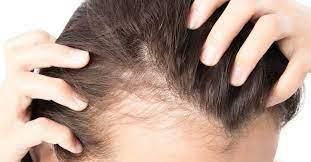Male pattern baldness is a condition in which males lose hair on their scalp. It happens as a man's hormone levels fluctuate throughout his life, especially in his later years.
Genetics, age, and hormones are the three primary causes that cause men to lose their hair. Male-pattern baldness, also known as androgenetic alopecia, occurs as a man's hormone levels fluctuate throughout his life. To battle this issue, you can visit a hair loss clinic Toronto.
Male-pattern baldness is also influenced by genetic factors. These factors lead to the steady reduction of scalp hair follicles, which are microscopic holes in the skin at the root of hairs. Hair becomes shorter and finer until no new hairs appear. According to their age and genetic composition, most men get some degree of baldness. By the age of 50, up to half of all white males have male pattern baldness, and by the age of 70, up to 80% of men in the same group have it. Other ethnic groups are less impacted, such as the Chinese and Japanese.
Men who have more first- and second-degree relatives who have lost their hair are more likely to lose their own hair. Male pattern baldness is caused by a combination of genetics and male sex hormones. It frequently accompanies a receding hairline and crown hair loss trend.
Each strand of hair is housed in a follicle, a small hole (cavity) in the epidermis. Baldness develops as the hair follicle shrinks with time, resulting in finer and shorter hair. The follicle eventually stops producing new hair. The follicles are still alive, indicating that new hair can still be grown.
The usual male balding pattern starts at the hairline. The hairline recedes and develops an "M" shape as it goes backwards (recesses). Over time, the vertex (around the region on the back of the skull) thins and grows in size. The hair eventually gets finer, shorter, and thinner, forming a U-shaped (or horseshoe) pattern along the sides of the head and a bald patch on the back.
Many men regard hair loss as a natural aspect of ageing and do not believe it necessitates treatment.
Final Words
Hair loss, on the other hand, can have severe psychological consequences, such as decreased self-esteem. It may cause depression in certain people. There are certain therapies that can help minimize hair loss.
Selecting these hair loss treatments and therapies from hair clinics can help you with effective results.






















 sunrise
StableDiffusion
sunrise
StableDiffusion
 bonfire friends
StableDiffusion
bonfire friends
StableDiffusion
 sadness
StableDiffusion
sadness
StableDiffusion

 purple skies
StableDiffusion
purple skies
StableDiffusion









